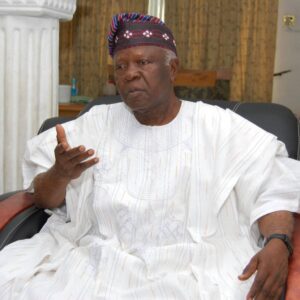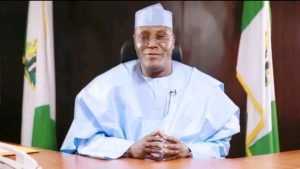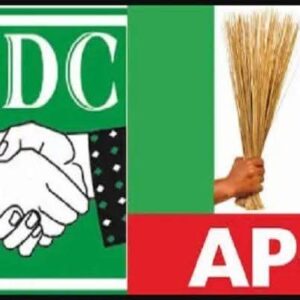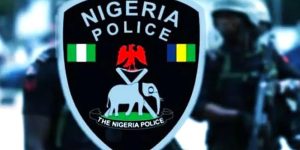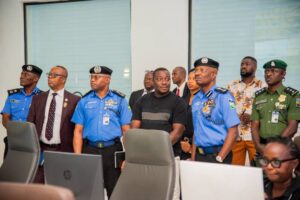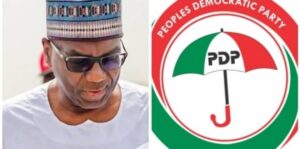OPINION: RESTRUCTURING NIGERIA AND THE UNIQUNESS OF KWARA STATE
BY AKOGUN IYIOLA OYEDEPO
I really have problems of knowing the difference between reconstruction, restructuring, true federalism, fiscal federalism etc when discussion is about the structure of Nigerian polity. European came together in Berlin in 1884 and partitioned Africa among them. To them, Africa of then had no owner, it was a virgin land inhabited by some homo sapien of inferior breed. Why not share the territory and take ownership of the Dark Continent? The present territory of Nigeria was given to the Queen of England. Egba was once an independent Country with all paraphernalia of a modern State. Lagos was once a colony with all powers of a State. Reconstruction or restructuring brought both Lagos and Egba Confederacy into what we now call Nigeria. There was once Northern and Southern Protectorates. It was the restructuring of 1914 that brought the two together to form a country called Nigeria. Nigeria was once into three unequal regions, then later four. The restructuring of 1967 brought centres of power to twelve. Nigeria went from twelve states to nineteen, then thirty and we now take a rest on thirty six state structure. All that had been established above is that whether we choose to call it reconstruction or restructuring, alteration of boundaries or creation of States is part of the social engineering in Nigeria’s inexorable growth into statehood. But restructuring in Nigeria have been 98% through Military fiat.
In method, if not in content and motive what the European did to Africans by sharing the territories of Africa among them is what the Military had done thus far in the acts of restructuring Nigeria. There had been this consistent knifing of the country that has no respect for the principle of federalism as it is well known. Creation of States in federalism should as much as possible have respect for homogeneity, culture, viability and history. Physical sharing of Nigeria in 1967, 1976, and 1992 had no respects for these well-known principles of federalism. States and Local Government Areas were created by whims and caprices of leaders including as gifts to wives, girl friends and loved domestic servants of those then in authority. Nigeria through physical federalism that has adopted the rule of the thumb in the act of state creation has taken the lazy man approach at statecraft: hence the ceaseless agitations for creation of more states and local government areas in Nigeria. As long as our federating units depend on economic survival of cake sharing at the centre, agitations for further balkanization of Nigeria will never cease until every local government is made a state and communities turned to local government areas.
But we are in a serious era of debate for re-arrangement or reconstruction of Nigeria. You may want to call it any name of your fancy: secession, restructuring, resource control, true federalism, fiscal federalism, regionalism, statism etc. The stand of virtually all sections of Nigeria today is the need for socio/political engineering of the polity. Ethnic, regional and geo-political groups are taking positions on the issue of restructuring. I am curious that nobody is talking in Kwara State. The South East talks of secession, South-South talks of resource control, Arewa gave ultimatum to the Ibos to quit the North, and Middle Belt says they are not with the Arewa group. South-West wants Oduduwa State or they are given a region of their own as it used to be before 1967. They also talk of regional integration. Kwara State is in the North-Central Nigeria but Kwara was not qualitatively represented at a meeting called to discuss the manifest destiny of the geo-political zone. Kwara State is in the Northern Nigeria as a fact but in truth some are not of the North. Kwara State is a unique State in the federation of Nigeria. As a State among the nineteen States of the North, it is unique. As a state in the six states of the North-Central geo-political zone, it is unique. The uniqueness of this State is in its complex cultural diversity that makes it different from others. The unique cultural composition accounts for some centrifugal forces that do not provide for enduring unity that can make all Kwarans believe that Kwara State is a permanent home for the citizens of the State. Two hundred years after the killing of Afonja and the Islamic conquest made the present territory of Kwara part of the expansive North, citizens still see themselves as mere inhabitants and they are nostalgic about ‘’going home’’. What really makes Kwara diversity complex and unique? There may be more than three hundred tongues or tribes in Nigeria. Some of these are too small for any meaningful agitation for independence. Some are facing imminent extinction as they may be subsumed under the big ones. A small ethnic group that obviously cannot stand alone can go into a conglomerate of attachment for common interest that can lead to common destiny. Thus if Birom, Tiv, Igala, Angas, Agatus etc can forge a common identity in a geo-political zone, it is not so if fractions of whole blocks are cut and bits are weld together to form an entity. That is what the Yorubas call ‘’apa alapa, ese elese’’ Literally interpreted it could be said to be strange heads on strange bodies: and that is what Kwara State is. While Birom, Tiv, Igala, Agatus Angas may have no kit and kin outside their present abodes that can be regarded as their ancestral origins, not so with the ethnic composition of Kwara State. The Yorubas of Kwara has their great chunk in the South-West, the Nupes have their own in Niger State, the Hausa/ Fulani have their own chunk in the North-West. The Barubas may be excited to be with their kit and kin of Borgu in the present Niger State since they may not join their brothers across the borders of Nigeria. All want to ‘’go home’’ because they have homes to go.
A unique ethnic composition as we have in Kwara needs skilful political engineering that will blend diversities. Two hundred years of relationships have not engendered trust and confidence in Kwara State. Ilorin is appropriately described as a cultural melting pot. At the dawn of the Islamic revolution of the eighteenth century; Ilorin became a home for all manners of immigrants and it became their homes. We have the Kemberis, Hausas, Fulanis, Nupes, Kanuris, Yorubas etc, all become what we can call Ilorians. The first set of political leaders of this community must be adept at political engineering to have weave together people of diverse background and provide for them a common identity. Even within the Yoruba Ilorin, there are still cultural variations. There are some from Igbomina and some from oyo, Ijesa, Egba etc. But one thing is sure; their cultural differences have been subsumed under a new developed Ilorin common heritage: hence the cultural melting pot. How was this feat attainable for Ilorin and could not be transformed to the holistic Kwara? Perhaps while the early rulers of this city understood their historical mission of creating a united entity out of pieces; our rulers of today wherever they come from believe in building ethnic or sectional fences to protect selfish interests of ethnic and religious dimensions. But could it be that our present day rulers are incapable of making small become big in human organizations? That is, could it be that what is done to weave together heterogeneous interests in Ilorin cannot be transformed to heterogeneous Kwara State? Sir Ahmadu Bello, the Sardauna of Sokoto in action and deeds can be accused of Northern hegemony against the rest of Nigeria. Nobody can take from him his love and commitment to one North. He is still venerated today for his love, fairness and compassion for the whole of the North. Sardauna’s solution to educational backwardness of some sections of the North against other educationally advantaged parts of the same North was not to hold down the hands of the advantaged over the disadvantaged; but rather to encourage the advantaged to bring up the disadvantaged. What the early rulers of Ilorin did to cement relationships in Ilorin and Ahamadu Bello practiced in the Northern Region were the necessary policies that can tame the centrifugal forces in the heterogeneous Kwara.
And that is the crux of the matter in restructuring of Nigeria and the fate of Kwara State. One still needs to ask how we have lived together as Kwarans for two hundred years during when we have been Northerners of either Middle Belt or North Central extractions; and we are still not truly together. If we are still not cemented with a passion for this State, then the Jihad of 1804 as far as Kwara State is concerned is an unfinished revolution. If the Yorubas of Kwara State is still nostalgic about an origin outside the geographical space called Kwara in the 21st Century or the Nupes still want to join the people of Bida to form an Ndaduma and the Barubas are stretching their necks across the territory of Kwara State for alternative habitation, what becomes of Kwara State in physical restructuring of Nigeria? In that circumstance if some people want to go and some do not want them to go; will Kwara not become a battle ground in the physical reconstruction of Nigeria?
And if what comes out of the present debate is fiscal federalism which is akin to resource control, how will Kwara State survive when our share from the federation account become depleted? Economic development in all ramifications is a blind concept. It has no respect for religion, nepotism, mediocrity, colour or tribe. It goes with whoever knows its mechanism of operation. It is about time we convene a Kwara Conference on how we want to face the issues that may arise from the varieties of this restructuring.Kwara State ought to be a model in political engineering. There is the need for a clear vision of policies that can cement relationships in this heterogeneous society. We should believe in our common humanity and be humane in policy formulation and implementation. There really should be no room for communal negative competitions or rivalries bordering only on ego of superiority of one section over the other. If we are not yet there but we sit down to decide that that is where Kwara is going, perhaps that will destroy the centrifugal forces that may tear us to pieces. I wish that as agitation for restructuring gains steam, Kwara’s case will not be: ‘’to your tents o Israel’’
Akogun Iyiola Oyedepo, a Kwara based frontline politician writes from Ilorin, Kwara state capital

